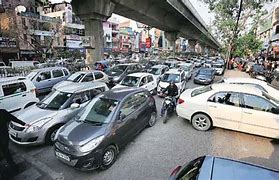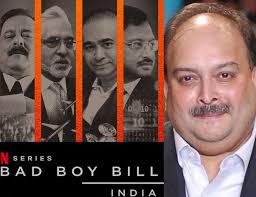Feature
Nursery admissions: HC order on Lt. Governor guideline Wednesday

New Delhi: The Delhi High Court Tuesday said it will pass order Dec 10 on the pleas challenging a single-judge bench’s decision to quash the Lt. Governor’s guidelines of last year on nursery admissions in the capital’s unaided private schools.
A division bench of Chief Justice G. Rohini and Justice R.S. Endlaw reserved the order for Wednesday on applications that sought interim suspension of the single judge bench’s order.
The Delhi government and NGO Social Jurist have filed appeals against the judge’s order which quashed the guidelines issued last year by Lt. Governor Najeeb Jung.
The order said that the neighbourhood, sibling and alumni criteria set as per the notification will go and schools can now set their own criteria according to the 2007 Ganguly Committee guidelines.
On Nov 28, Justice Manmohan quashed the points system, saying the guidelines were in violation of the fundamental rights of the school managements to have maximum autonomy in day-to-day administration, including the right to admit students.
The Lt. Governor issued the guidelines Dec 18, 2013, after which a number of petitions were filed against them.
The guidelines outlined several criteria, including the neighbourhood factor, which sought that schools give preference to children living within eight km of it.
This criterion was given the maximum weightage of 70 points out of 100 in the open category sea ts.
ts.
Other criteria were siblings studying in the same school (20 points), applications of girls (five points), and wards of school alumni (five points).
Seeking that the single judge bench’s order be quashed, the and NGO Social Jurist said there cannot be any discrimination, question of autonomy in the matter of admitting children around three years of age in nursery.
The plea said: “The judge erred to hold that if parents are given freedom to choose schools, the good schools would attract more students and would expand and not-so-good schools would lose students.”
It said the guidelines were child-centric and deserved to be upheld by law. The single judge bench quashing the lieutenant governor`s guidelines had said the power to decide the school for a child should lie with the parents and not with the government.
The court had said it nowhere stipulates that “children would have to take admission only in a neighbourhood school or that children cannot take admissions in schools situated beyond their neighbourhood”.
Entertainment
Meghalaya Reserves Legalized Gambling and Sports Betting for Tourists

The State Scores Extra High on Gaming-Friendly Industry Index
Meghalaya scored 92.85 out of 100 possible points in a Gaming Industry Index and proved to be India’s most gaming-friendly state following its recent profound legislation changes over the field allowing land-based and online gaming, including games of chance, under a licensing regime.
The index by the UK India Business Council (UKIBC) uses a scale of 0 to 100 to measure the level of legalisation on gambling and betting achieved by a state based on the scores over a set of seven different games – lottery, horse racing, betting on sports, poker, rummy, casino and fantasy sports
Starting from February last year, Meghalaya became the third state in India’s northeast to legalise gambling and betting after Sikkim and Nagaland. After consultations with the UKIBC, the state proceeded with the adoption of the Meghalaya Regulation of Gaming Act, 2021 and the nullification of the Meghalaya Prevention of Gambling Act, 1970. Subsequently in December, the Meghalaya Regulation of Gaming Rules, 2021 were notified and came into force.
All for the Tourists
The move to legalise and license various forms of offline and online betting and gambling in Meghalaya is aimed at boosting tourism and creating jobs, and altogether raising taxation revenues for the northeastern state. At the same time, the opportunities to bet and gamble legally will be reserved only for tourists and visitors.
“We came out with a Gaming Act and subsequently framed the Regulation of Gaming Rules, 2021. The government will accordingly issue licenses to operate games of skill and chance, both online and offline,” said James P. K. Sangma, Meghalaya State Law and Taxation Minister speaking in the capital city of Shillong. “But the legalized gambling and gaming will only be for tourists and not residents of Meghalaya,” he continued.
To be allowed to play, tourists and people visiting the state for work or business purposes will have to prove their non-resident status by presenting appropriate documents, in a process similar to a bank KYC (Know Your Customer) procedure.
Meghalaya Reaches Out to a Vast Market
With 140 millions of people in India estimated to bet regularly on sports, and a total of 370 million desi bettors around prominent sporting events, as per data from one of the latest reports by Esse N Videri, Meghalaya is set to reach out and take a piece of a vast market.
Estimates on the financial value of India’s sports betting market, combined across all types of offline channels and online sports and cricket predictions and betting platforms, speak about amounts between $130 and $150 billion (roughly between ₹9.7 and ₹11.5 lakh crore).
Andhra Pradesh, Telangana and Delhi are shown to deliver the highest number of bettors and Meghalaya can count on substantial tourists flow from their betting circles. The sports betting communities of Karnataka, Maharashtra, Uttar Pradesh and Haryana are also not to be underestimated.
Among the sports, cricket is most popular, registering 68 percent of the total bet count analyzed by Esse N Videri. Football takes second position with 11 percent of the bets, followed by betting on FIFA at 7 percent and on eCricket at 5 percent. The last position in the Top 5 of popular sports for betting in India is taken by tennis with 3 percent of the bet count.
Local Citizens will Still have Their Teer Betting
Meghalaya residents will still be permitted to participate in teer betting over arrow-shooting results. Teer is a traditional method of gambling, somewhat similar to a lottery draw, and held under the rules of the Meghalaya Regulation of the Game of Arrow Shooting and the Sale of Teer Tickets Act, 2018.
Teer includes bettors wagering on the number of arrows that reach the target which is placed about 50 meters away from a team of 20 archers positioned in a semicircle.
The archers shoot volleys of arrows at the target for ten minutes, and players place their bets choosing a number between 0 and 99 trying to guess the last two digits of the number of arrows that successfully pierce the target.
If, for example, the number of hits is 256, anyone who has bet on 56 wins an amount eight times bigger than their wager.





















